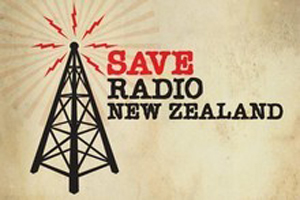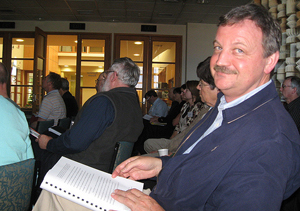
Alan Cocker
OPINION: AUCKLAND: On first acquaintance, the news that the government's funding freeze had led Radio New Zealand to put its two grand pianos out to tender seemed, well, off-key. Surely they are not so impoverished that they can't afford to keep two second-hand pianos? Yet the new chairman of RNZ, Richard Griffin, conceded to Parliament's commerce select committee that the future hopes of public radio rested on the sale of the two pianos and possibly raising money by donations to a charitable trust.
Yet the new chairman of RNZ, Richard Griffin, conceded to Parliament's commerce select committee that the future hopes of public radio rested on the sale of the two pianos and possibly raising money by donations to a charitable trust.
However, we must move beyond the image of a piano and a begging bowl. We live in a time when public expenditure has to be very carefully considered, so is the government not correct to put public radio under considerable constraint?
After all, public radio primarily addresses two elements of our lives which might not be considered essential, democracy and our culture. In response the government might respond that this is a cheap shot. Privately owned media also serves these needs.
Yet these are not private radio's primary functions and the promise that a deregulated broadcasting market would serve all our needs now seems a hollow promise more than 20 years after the government introduced broadcasting deregulation.
Although there is a plethora of stations most are crowded into a narrow band of radio taste offering variations on popular music or talkback formats.
No private service provider has come forth in the past two decades to challenge the National Programmes contribution to political and general information programming from Morning Report, Checkpoint and Nine to Noon to the Saturday and Sunday morning programmes.
Cultural programmes
Then there are the long-standing and respected programmes covering the arts, religion, agriculture, Maori and Pacific communities as well as public radio projecting our voice into the Pacific and beyond with Radio New Zealand International.
In music, RNZ is the only mainstream radio provider of formats such as classical music and jazz. There was one attempt in New Zealand in the 1990s to establish a commercial classical music station. But even before it finally failed its offering of largely taped programming introduced by a seemingly disembodied American voice unattached to time or place was no cultural substitute for the Concert programme.
We could rightly be seen as a very odd and purblind culture if there was no place for these intrinsic parts of musical life on our radio spectrum.
The cartoon in the New Zealand Herald showed Minister Jonathan Coleman throwing out keys from a grand piano, stating: "Since when do you need 88 keys to play Chopsticks." The point made with admirable concision is that a limited palette pitched only at what is considered the broadest taste is utterly limiting. A healthy culture is diverse and vibrant. As with anything that grows and is healthy, monocultures are dangerous and this is certainly true of music and information.
Coleman stated when introducing Radio New Zealand's updated charter in June 2009: "There is a remarkably high level of public support for the concept of public service radio broadcasting in New Zealand."
The enactment of the legislation was to provide "certainty and clarity to Radio New Zealand as a public service broadcaster". To date this clear direction appears merely to be the imposed certainty to live within a $34 million income frozen for four years.
The global recession has limited income for private media and the range of services they provide has in many instances contracted.
Broad consensus
Public media, which are not reliant on advertising, offer a different service because they are not focused on the needs of advertisers.
Radio funded from the public purse might expect some restraint in troubled times although it could also be cogently argued that this is a time when we need more, not less, information. But, according to Radio New Zealand's chairman, if new funding is not found, RNZ "will wither on the vine".
There is a broad consensus in the New Zealand community about the merits of public radio which crosses the political boundaries.
Even if we are not regular listeners we appreciate a trusted service to which we can turn in times of national emergency or political crisis and most New Zealanders accept cultural "subsidy" in order to serve our diverse interests and cultures.
We need public radio's music and talk and it would be a national tragedy if government policy in this sector left us culturally and democratically the poorer.
Dr Alan Cocker is head of the School of Communication Studies at Auckland University of Technology. This article is republished from the New Zealand Herald with the author's permission.



